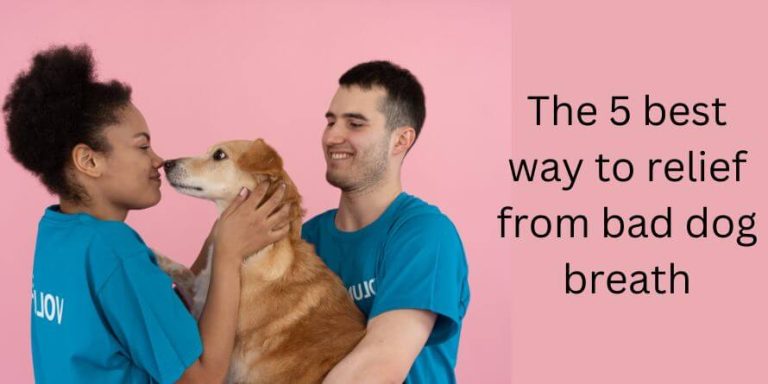Dogs pant for various reasons, including being overheated, stressed, or in pain. Panting can also be a sign of excitement or anticipation. Restlessness can be a sign of anxiety, discomfort, or the need to go to the bathroom.
In some cases, why is my dog panting and restless? They can indicate a more serious underlying health issue, such as an infection or heart problem.
It is important to observe your dog’s behavior and look for other signs or symptoms that may indicate the cause of the panting and restlessness.
If your dog is experiencing prolonged or severe panting and restlessness, it is advisable to seek veterinary attention.
Table of Contents
Why is My Dog Panting and Restless

Why is My Dog Panting and Restless All the time
There are many reasons behind this, but certain symptoms can be shown when you notice the problem with your dog’s primary organ system.
But the night you have seen in a different scene,y loud thunderstorms, fireworks, and separation anxiety. Some of the important lists below are now and then we see.
- Heart disease
- Respiratory Disease
- Canine Dementia in Older Dogs
- Separation anxiety
- Toxicity
- Medication side effects
- Your dog might need the toilet
- Arthritis
- Pain
- Heatstroke
- Obesity
- Cognitive dysfunction
- Exercise
- Noises
- Age
- Body temperature
- Anxiety
- Environmental issues
- Anemia
- Fear
- Neurological disorder
- Poisoning
- Allergies
- Brachycephaly
Why is my dog panting
Dogs pant for several reasons, including overheating, stress, exercise, pain, and illness. If your dog’s panting is excessive or accompanied by other symptoms, it’s best to consult with a veterinarian.
If you need dog and owner costumes, here are the beautiful collections.
Why is my dog restless?
As a language model AI, I can’t observe your dog, but there could be several reasons why your dog is restless:
- Boredom: Dogs need physical and mental stimulation to be happy and content. If your dog is not getting enough exercise or playtime, it could be restless.
- Hunger or thirst: Make sure your dog has access to food and water at all times.
- Health problems: Restlessness could be a symptom of a health problem such as pain, discomfort, or a gastrointestinal issue.
- Separation anxiety: If your dog is restless when you’re not home, it could be a sign of separation anxiety.
- Stress: Dogs can become stressed in response to changes in their environment or routines.
- Over-excitement: If your dog is overexcited and can’t calm down, it could be restless.
It’s essential to take note of any changes in your dog’s behavior and consult a veterinarian if necessary.

How to calm a panting dog
To calm a panting dog: let’s have a look!
- Provide water.
- Create a cool, quiet environment.
- Offer distractions, such as a toy.
- Take them for a walk or play session.
- Offer belly rubs or affection.
- Consult with a vet to rule out any underlying health issues.
Why is my dog panting and shaking
Your dog may be panting and shaking for various reasons, including:
- Overheating or heat stroke
- Anxiety or stress
- Pain or injury
- Exercise or excitement
- Neurological or respiratory issues
- Fever or illness
- If you suspect your dog is in pain or has a serious health issue, it’s best to consult a veterinarian.
What do I do if my dog is panting and restless?
You’re finding a good solution to get sleep without stress, but all you may hear is your dog pacing around. I seem to talk about night terrors, panting, and being restless at night.
So, there are a variety of reasons why and what do I do if my dog is panting and restless when they feel stress, anxiety, or illness. Now, we need to figure out what’s the problem causing their behaviors. To calm your dog, we suggested the following.
Your dogs need a good amount of physical exercise appropriate for their age and breed. However, they need mental stimulation, positive reinforcement training, and teaching them for mental happiness.
You must always prioritize reducing their overall stress. Whatever you are facing, try to stop them from feeling worse. This makes them comfortable when they are unwell, such as drinking excessively, having diarrhea, vomiting, crying, or suddenly developing a cough.
How to treat a panting dog
If you treat your puppy well, you will see that at the moment of your puppy’s birth, you may notice your dog panting with its tongue lolling out the side of its mouth. Dogs don’t sweat like humans do.
FAQs
Why is my dog panting and pacing around?
A dog panting and pacing around may be a sign of:
- Anxiety or stress
- Overstimulation or excitement
- Pain or discomfort
- Need to urinate
- Illness or fever
- If you are unable to identify a specific cause for your dog’s behavior, or if it persists or worsens, it’s best to consult a veterinarian.
When should I worry about dog panting?
You should worry about your dog panting and seek veterinary care if:
- Panting is excessive and persistent, even when the dog is not active.
- Panting is accompanied by other signs of distress, such as whining, shaking, restlessness, or hiding.
- Other symptoms, such as vomiting, diarrhea, coughing, or breathing difficulties, accompany panting.
- Your dog has a history of health issues, such as heart disease, lung disease, or heat stroke.
- Your dog has been exposed to heat, stress, or toxins that could cause overheating or poisoning.
- You suspect your dog is in pain or has been injured.
- If you’re ever in doubt, it’s always better to err on the side of caution and consult a veterinarian.
Why is my dog panting and won’t lie down?
A dog panting and unable to lie down may indicate:
- Pain or discomfort
- Overstimulation or anxiety
- Illness or fever
- Heat stroke
- Restlessness or agitation
- If your dog’s panting is excessive, persistent, or accompanied by other signs of distress, seek veterinary care.
How do you calm a dog down from panting?
To calm a dog down from panting:
- Create a calm, quiet environment.
- Offer plenty of water.
- Provide a comfortable place for your dog to rest.
- Distract them with a toy or treat.
- Offer belly rubs or affection.
- Take them for a walk or a play session.
- Consider using calming aids such as pheromone sprays or adaptogenic herbs under the guidance of a veterinarian.
- Consult with a veterinarian to rule out any underlying health issues.
Final Words
It depends on the context. Panting and restlessness in dogs can be normal and healthy, such as when they are playing, exercising, or experiencing excitement.
However, if the panting and restlessness are excessive, prolonged, or accompanied by other symptoms, it can indicate an underlying health issue or discomfort and should be addressed by a veterinarian.
In general, it’s important to observe your dog’s behavior and be aware of any changes in their normal patterns, as these can be signs of an underlying problem.
- Please read our other article: best dog water bowls for sloppy drinkers




